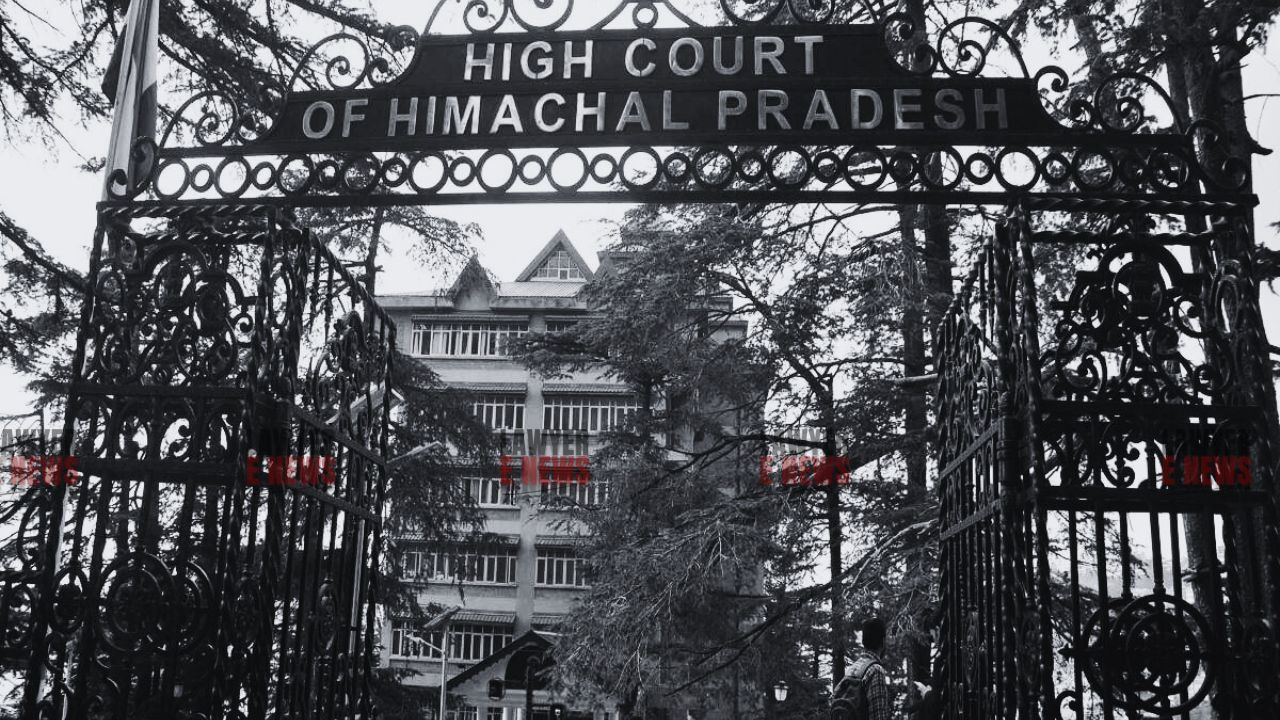-
by Admin
19 February 2026 3:14 PM



“Liberty under Article 21 cannot be overridden merely by the seriousness of the offence or presence of criminal antecedents” – Himachal Pradesh High Court delivered a significant ruling while granting regular bail in a case under the Narcotic Drugs and Psychotropic Substances Act, 1985, where the accused had remained in custody for more than one year and nine months. The Court held that “prolonged incarceration without even the commencement of trial amounts to a violation of the fundamental right guaranteed under Article 21 of the Constitution of India”, even in cases involving prior convictions.
Justice Rakesh Kainthla emphasized that “stringent bail provisions under NDPS Act are constitutionally permissible only if the trial proceeds with reasonable expedition”, and “where the trial is indefinitely delayed, the presumption of innocence must prevail over preventive detention.”
The case arose from FIR No. 87 of 2023, dated 31.07.2023, registered at Police Station Dharampur, District Solan, Himachal Pradesh, in which the petitioner Yash Pal Thakur was arrested under Sections 21 and 29 of the NDPS Act. The FIR alleged that 16.01 grams of heroin—an intermediate quantity—was recovered from a vehicle he was travelling in.
Although the co-accused had already been released on bail, Thakur remained in custody since the date of arrest. Despite the filing of the charge sheet on 26.09.2023, not a single witness had been examined by the time of hearing. The petitioner contended that the delay in trial was not attributable to him, and he was being punished through pre-trial detention in violation of Article 21.
The State opposed the bail, pointing out the petitioner’s prior conviction in an NDPS case and his alleged tendency to reoffend.
The Court held that “the right to file successive bail applications exists only upon a material change in circumstances,” citing State of Maharashtra v. Captain Buddhikota Subha Rao and State of M.P. v. Kajad. The Court found such a change had occurred, observing: “The delay in trial is not attributable to the petitioner. No prosecution witness has been examined so far. This amounts to a material change in the factual situation since the dismissal of the earlier bail application.”
Citing Mohd. Muslim v. State (NCT of Delhi), the Court underscored that: “When provisions of law curtail the right of an accused to secure bail, they are upheld on the condition that the trial is concluded expeditiously. The constitutional right to liberty is not conditional upon the seriousness of the charge alone.”
The Court quoted the Supreme Court’s caution in Shaheen Welfare Association v. Union of India that: “When persons are deprived of personal liberty for a considerable length of time without any prospect of the trial being concluded in the near future, some relief becomes necessary.”
On the question of prior convictions, the Court clarified: “The presence of criminal antecedents is one of many considerations in deciding bail. It cannot by itself justify prolonged incarceration without trial. A court may grant bail solely on the basis of long incarceration, as held in Ayub Khan v. State of Rajasthan.”
The Court referred to numerous precedents including Ajwar v. Waseem, Ramratan v. State of M.P., and Javed Gulam Nabi Shaikh v. State of Maharashtra, reaffirming that the right to a speedy trial is a non-negotiable facet of Article 21.
Referring to prison conditions and the consequences of unending pre-trial detention, Justice Kainthla quoted the Supreme Court’s warning in Mohd. Muslim:
“Jails are overcrowded, and their living conditions are often appalling. Incarceration can result in psychological harm, loss of livelihood, and alienation from society.”
The Court noted that the quantity involved—16.01 grams of heroin—was just over the lower threshold of intermediate quantity, and hence, the harshest interpretation of the NDPS Act's bail restrictions was not warranted.
It further stated: “The failure to conclude the trial within one year and nine months justifies the plea that the petitioner’s right to a speedy trial is being violated. The liberty of the accused cannot be denied indefinitely merely because of the seriousness of the allegation.”
Granting bail, the Court imposed conditions including a bail bond of ₹50,000, regular appearance before the Trial Court, surrender of passport, and compliance with all police or court notices.
The Court cautioned: “It is expressly made clear that in case of violation of any of these conditions, the prosecution shall have the right to seek cancellation of bail.”
The Himachal Pradesh High Court has reaffirmed the primacy of constitutional rights even under stringent statutory frameworks like the NDPS Act, underscoring that “detention cannot be prolonged to compensate for systemic delays.”
Justice Kainthla’s ruling sends a strong message that “courts must act as guardians of liberty when prosecution fails to fulfill its duty to prosecute timely.” The decision is a reminder that “bail is the rule and jail the exception,” and that “the presumption of innocence cannot be eroded by institutional lethargy or procedural stagnation.”
Date of Decision: 3rd June 2025
